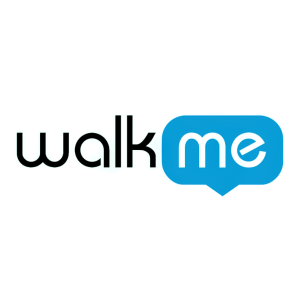Employees Left Behind in Workplace AI Boom, New WalkMe Survey Finds
Rhea-AI Summary
WalkMe (NASDAQ:WKME) has released its second annual "AI in the Workplace Survey," revealing significant challenges in enterprise AI adoption. The survey found that 78% of employees use unauthorized AI tools, while 51% report conflicting guidance on AI usage. Despite 80% of workers believing AI improves productivity, nearly 60% admit spending more time learning AI tools than completing tasks manually.
The study highlights a critical training gap, with only 7.5% of employees receiving extensive AI training and 23% receiving no training at all. According to WalkMe's 2025 State of Digital Adoption Report, companies lost an average of $104 million in 2024 due to underutilized tools and poor implementation.
Positive
- 80% of employees believe AI improves workplace productivity
- 16-point increase in daily AI users since previous year
- Survey reveals strong employee eagerness to adopt AI technologies
Negative
- 78% of employees use unauthorized AI tools, creating security and compliance risks
- Companies lost average of $104 million in 2024 due to poor tool implementation
- Only 7.5% of employees received extensive AI training
- 60% report longer time spent learning AI than completing tasks manually
- 51% report conflicting guidance on AI usage
Nearly
SAN FRANCISCO, Aug. 27, 2025 (GLOBE NEWSWIRE) -- The AI revolution is well underway in the workplace, but a new survey from WalkMe, an SAP company and pioneer of the Digital Adoption Platform (DAP) category, reveals that employees are being left to navigate it on their own. The company’s second annual “AI in the Workplace Survey” finds that while workers are eager, most lack the support needed to use AI responsibly and effectively, fueling risk, wasted productivity, and lost ROI.
Shadow AI is everywhere
AI tools are flooding the workplace — but often without IT’s approval.
The productivity paradox
Employees overwhelmingly believe in AI’s potential, with
"Beyond the productivity paradox, we’re facing a full-blown governance crisis,” said Dan Adika, CEO and Co-founder, WalkMe. “When nearly
AI stigma at work
Cultural confusion is compounding the problem. Nearly half (
Training gap blocks ROI
The enablement gap is stark. The number of daily AI users increased by 16 points since last year’s survey, but only
“AI has become an essential enterprise skill. But without training and guardrails, shadow AI creates risk and undermines ROI,” said Gina Smith, PhD, Research Director, IT Skills for Digital Business, IDC. “The companies that build AI‑ready skills and digital adoption strategies now can avoid such loss. They are the organizations who will lead the next era of work.”
Methodology
This report is based on a survey conducted by Propeller Insights on behalf of WalkMe between July 16 and 23, 2025. The survey polled 1,000 working U.S. adults who use AI in their jobs in some capacity. The sample was balanced to be nationally representative across age, gender, industry, company size, and seniority. The margin of error for the total sample is ±3 percentage points. The survey was designed to screen for employees who use AI at work, so the
About WalkMe:
WalkMe, an SAP company, pioneered the world’s leading Digital Adoption Platform, enabling organizations to navigate the change brought on by technology. Leveraging over a decade of experience, WalkMe’s platform integrates generative AI to deliver proactive, accessible, and actionable insights. Our context-aware solutions guide users through any workflow, identifying and resolving digital friction to ensure seamless execution of critical processes across all departments. Trusted by global leaders like IBM, Nestlé, ThermoFisher Scientific, and the U.S. Department of Defense, WalkMe empowers organizations to maximize software ROI and drive people-centric digital transformation. Visit www.walkme.com.
Media Contact:
Melanie Pasch
press@walkme.com








